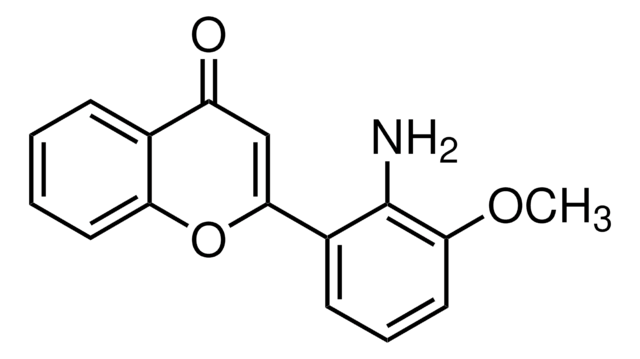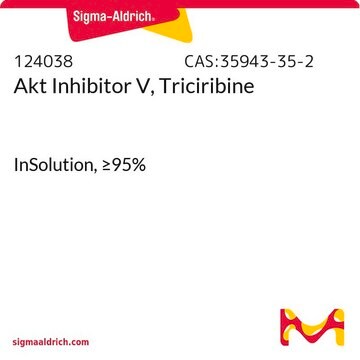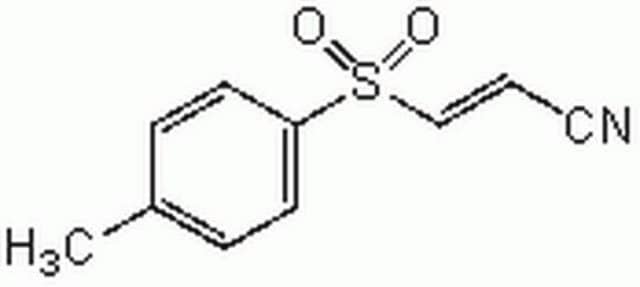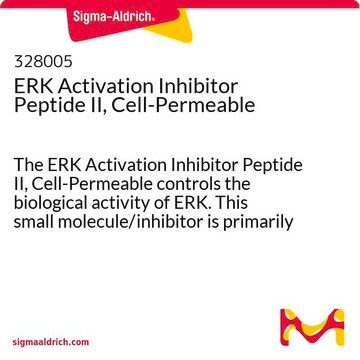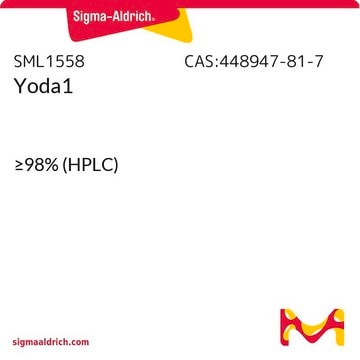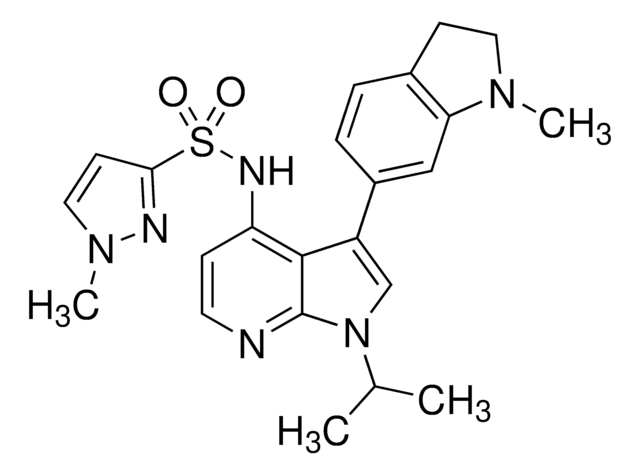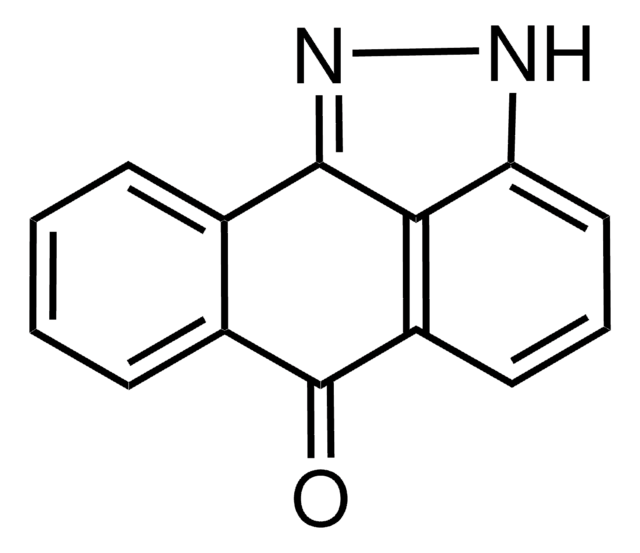SML2842
BAY 1125976
≥98% (HPLC)
Synonym(s):
2-[4-(1-Aminocyclobutyl)phenyl]-3-phenylimidazo[1,2-b]pyridazine-6-carboxamide, BAY-1125976, BAY1125976
About This Item
Recommended Products
Quality Level
Assay
≥98% (HPLC)
form
powder
color
white to beige
solubility
DMSO: 2 mg/mL, clear
storage temp.
2-8°C
SMILES string
[n]21nc(ccc2nc(c1c5ccccc5)c3ccc(cc3)C4(CCC4)N)C(=O)N
InChI
1S/C23H21N5O/c24-22(29)18-11-12-19-26-20(21(28(19)27-18)16-5-2-1-3-6-16)15-7-9-17(10-8-15)23(25)13-4-14-23/h1-3,5-12H,4,13-14,25H2,(H2,24,29)
Biochem/physiol Actions
Storage Class Code
11 - Combustible Solids
WGK
WGK 3
Flash Point(F)
Not applicable
Flash Point(C)
Not applicable
Choose from one of the most recent versions:
Certificates of Analysis (COA)
Sorry, we don't have COAs for this product available online at this time.
If you need assistance, please contact Customer Support.
Already Own This Product?
Find documentation for the products that you have recently purchased in the Document Library.
Our team of scientists has experience in all areas of research including Life Science, Material Science, Chemical Synthesis, Chromatography, Analytical and many others.
Contact Technical Service
